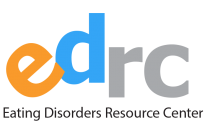CREDENTIALS/DISCIPLINE: I completed my PhD in Clinical Psychology with a focus on eating disorders and Obesity. As a psychologist, I believe in empirically based treatments that have been show to be effective for individuals looking for lasting changes in their lives.
BOARD CERTIFIED: Yes – Board of Psychology
Number of years treating patients with eating disorders: 5-8 years
Number of patients with eating disorders I treat annually: 15+
EDUCATION, TRAINING, and EXPERTISE: I have been working in the eating disorders field since 2008. While I have conducted research published in scientific journals such as the International Journal of Eating Disorders, my true passion is clinical work. I have received training in the assessment and treatment of eating disorders from Cornell School of Medicine, the University of California San Diego, and Stanford University. I remain on clinical faculty at Stanford University where I provide care for individuals struggling with eating and mood disorders. I have a passion for helping individuals with unhealthy eating patterns, whether that may be anorexia, bulimia, binge eating disorder, or obesity. I also have extensive experience working with patients both pre- and post-bariatric surgery.
TREATMENT PHILOSOPHY: My treatment philosophy is patient-centered and strength-based. I believe that all patients have overcome adversity in their lives long before they walk through my door. As a clinician, I empower the individual to use their prior experiences to lend a hand in creating a treatment plan to conquer an eating disorder. While I have expertise in eating disorders, depression, and trauma, it is the patient who is an expert in their own resilience. I work with patients so that they can learn to battle their eating disorder long after they leave therapy. When patients have finished eating disorder treatment with me, not only have they returned to a more normal pattern of eating and thinking, but they have the strength and tools to overcome challenges that may present themselves in the future.
Yes, I believe it is possible to recover from an eating disorder.
I believe that someone has recovered from their eating disorder when they are able to refocus their attention and spend time and energy on the things that are most important to them. I have seen many individuals give up hobbies, relationships, time with family and friends, and even working because the eating disorder was so powerful and so detrimental to their way of life. All of my therapeutic work comes from an empowerment perspective so individuals can regain control of their lives and create the life they have always wanted. True recovery does not mean that someone may never have a negative thought about their body, or an urge to return to dieting. True recovery occurs when a person can experience these urges and successfully battle these negative thinking patterns such that they find relief and satisfaction in their lives.
FEES: Cash, Credit Cards, Personal Checks. If covered by a PPO, patient needs to apply for reimbursement.

